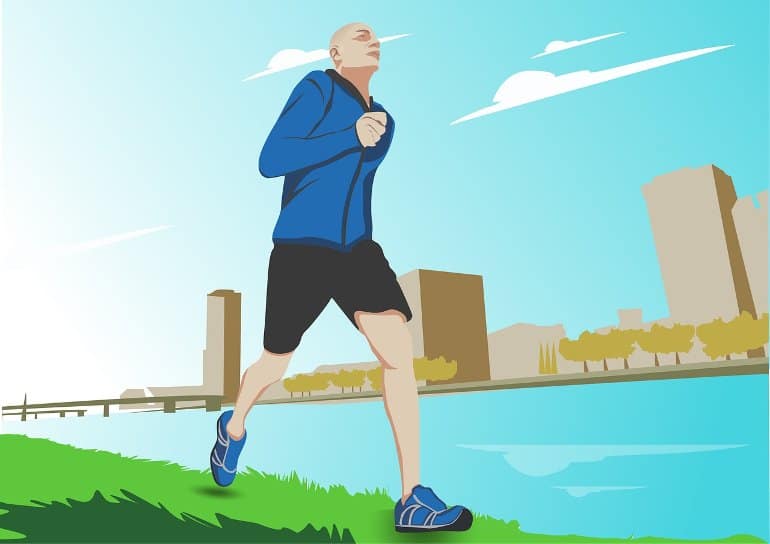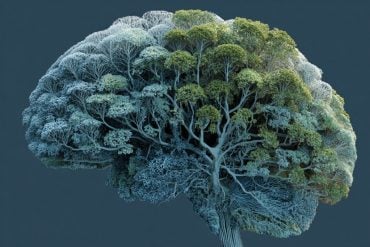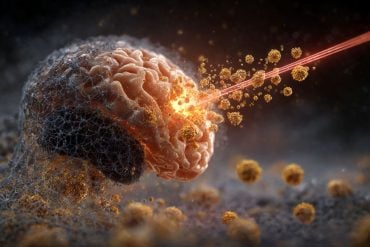Summary: Dopamine plays a vital role in why exercise and physical activity feels easy to some, but exhausting to others, a new study reports. The findings could lead to more effective ways to help people begin and stick to exercise regimes, and sheds new light on fatigue associated with depression and Parkinson’s disease.
Source: Johns Hopkins University
Dopamine, a brain chemical long associated with pleasure, motivation and reward-seeking, also appears to play an important role in why exercise and other physical efforts feel “easy” to some people and exhausting to others, according to results of a study of people with Parkinson’s disease led by Johns Hopkins Medicine researchers. Parkinson’s disease is marked by a loss of dopamine-producing cells in the brain over time.
The findings, published online April 1 in NPG Parkinson’s Disease, could, the researchers say, eventually lead to more effective ways to help people establish and stick with exercise regimens, new treatments for fatigue associated with depression and many other conditions, and a better understanding of Parkinson’s disease.
“Researchers have long been trying to understand why some people find physical effort easier than others,” says study leader Vikram Chib, Ph.D., associate professor in the Department of Biomedical Engineering at the Johns Hopkins University School of Medicine and research scientist at the Kennedy Krieger Institute.
“This study’s results suggest that the amount of dopamine availability in the brain is a key factor.”
Chib explains that after a bout of physical activity, people’s perception and self-reports of the effort they expended varies, and also guides their decisions about undertaking future exertions.
Previous studies have shown that people with increased dopamine are more willing to exert physical effort for rewards, but the current study focuses on dopamine’s role in people’s self-assessment of effort needed for a physical task, without the promise of a reward.
For the study, Chib and his colleagues from Johns Hopkins Medicine and the Kennedy Krieger Institute recruited 19 adults diagnosed with Parkinson’s disease, a condition in which neurons in the brain that produce dopamine gradually die off, causing unintended and uncontrollable movements such as tremors, fatigue, stiffness and trouble with balance or coordination.
In Chib’s lab, 10 male volunteers and nine female volunteers with an average age of 67 were asked to perform the same physical task — squeezing a hand grip equipped with a sensor — on two different days within four weeks of each other.
On one of the days, the patients were asked to take their standard, daily synthetic dopamine medication as they normally would. On the other, they were asked not to take their medication for at least 12 hours prior to performing the squeeze test.
On both days, the patients were initially taught to squeeze a grip sensor at various levels of defined effort, and then were asked to squeeze and report how many units of effort they put forth.
When the participants had taken their regular synthetic dopamine medication, their self-assessments of units of effort expended were more accurate than when they hadn’t taken the drug. They also had less variability in their efforts, showing accurate squeezes when the researchers cued them to squeeze at different levels of effort.
In contrast, when the patients hadn’t taken the medication, they consistently over-reported their efforts — meaning they perceived the task to be physically harder — and had significantly more variability among grips after being cued.
In another experiment, the patients were given a choice between a sure option of squeezing with a relatively low amount of effort on the grip sensor or flipping a coin and taking a chance on having to perform either no effort or a very high level of effort.

When these volunteers had taken their medication, they were more willing to take a chance on having to perform a higher amount of effort than when they didn’t take their medication.
A third experiment offered participants the choice between getting a small amount of guaranteed money or, with the flip of a coin, getting either nothing or a higher amount of money.
Results showed no difference in the subjects on days when they took their medication and when they did not. This result, researchers say, suggests that dopamine’s influence on risk-taking preferences is specific to physical effort-based decision-making.
Together, Chib says, these findings suggest that dopamine level is a critical factor in helping people accurately assess how much effort a physical task requires, which can significantly affect how much effort they’re willing to put forth for future tasks. For example, if someone perceives that a physical task will take an extraordinary amount of effort, they may be less motivated to do it.
Understanding more about the chemistry and biology of motivation could advance ways to motivate exercise and physical therapy regimens, Chib says. In addition, inefficient dopamine signaling could help explain the pervasive fatigue present in conditions such as depression and long COVID, and during cancer treatments. Currently, he and his colleagues are studying dopamine’s role in clinical fatigue.
Other researchers who participated in this study include Purnima Padmanabhan, Agostina Casamento-Moran, and Alexander Pantelyat of Johns Hopkins; Ryan Roemmich of Johns Hopkins and the Kennedy Krieger Institute; and Anthony Gonzalez of the Kennedy Krieger Institute.
Funding: This work was funded by the Eunice Kennedy Shriver National Institute of Child Health and Human Development of the National Institutes of Health (R01HD097619), the National Institutes of Mental Health (R56MH113627 and R01MH119086) and the National Institute of Aging (R21AG059184).
About this exercise and neuroscience research news
Author: Vanessa Wasta
Source: John Hopkins University
Contact: Vanessa Wasta – Johns Hopkins University
Image: The image is in the public domain
Original Research: Open access.
“Dopamine facilitates the translation of physical exertion into assessments of effort” by Vikram Chib et al. npj Parkinson’s Disease
Abstract
Dopamine facilitates the translation of physical exertion into assessments of effort
Our assessments of effort are critically shaped by experiences of exertion. However, it is unclear how the nervous system transforms physical exertion into assessments of effort. Availability of the neuromodulator dopamine influences features of motor performance and effort-based decision-making.
To test dopamine’s role in the translation of effortful exertion into assessments of effort, we had participants with Parkinson’s disease, in dopamine depleted (OFF dopaminergic medication) and elevated (ON dopaminergic medication) states, exert levels of physical exertion and retrospectively assess how much effort they exerted.
In a dopamine-depleted state, participants exhibited increased exertion variability and over-reported their levels of exertion, compared to the dopamine-supplemented state. Increased exertion variability was associated with less accurate effort assessment and dopamine had a protective influence on this effect, reducing the extent to which exertion variability corrupted assessments of effort.
Our findings provide an account of dopamine’s role in the translation of features of motor performance into judgments of effort, and a potential therapeutic target for the increased sense of effort observed across a range of neurologic and psychiatric conditions.






